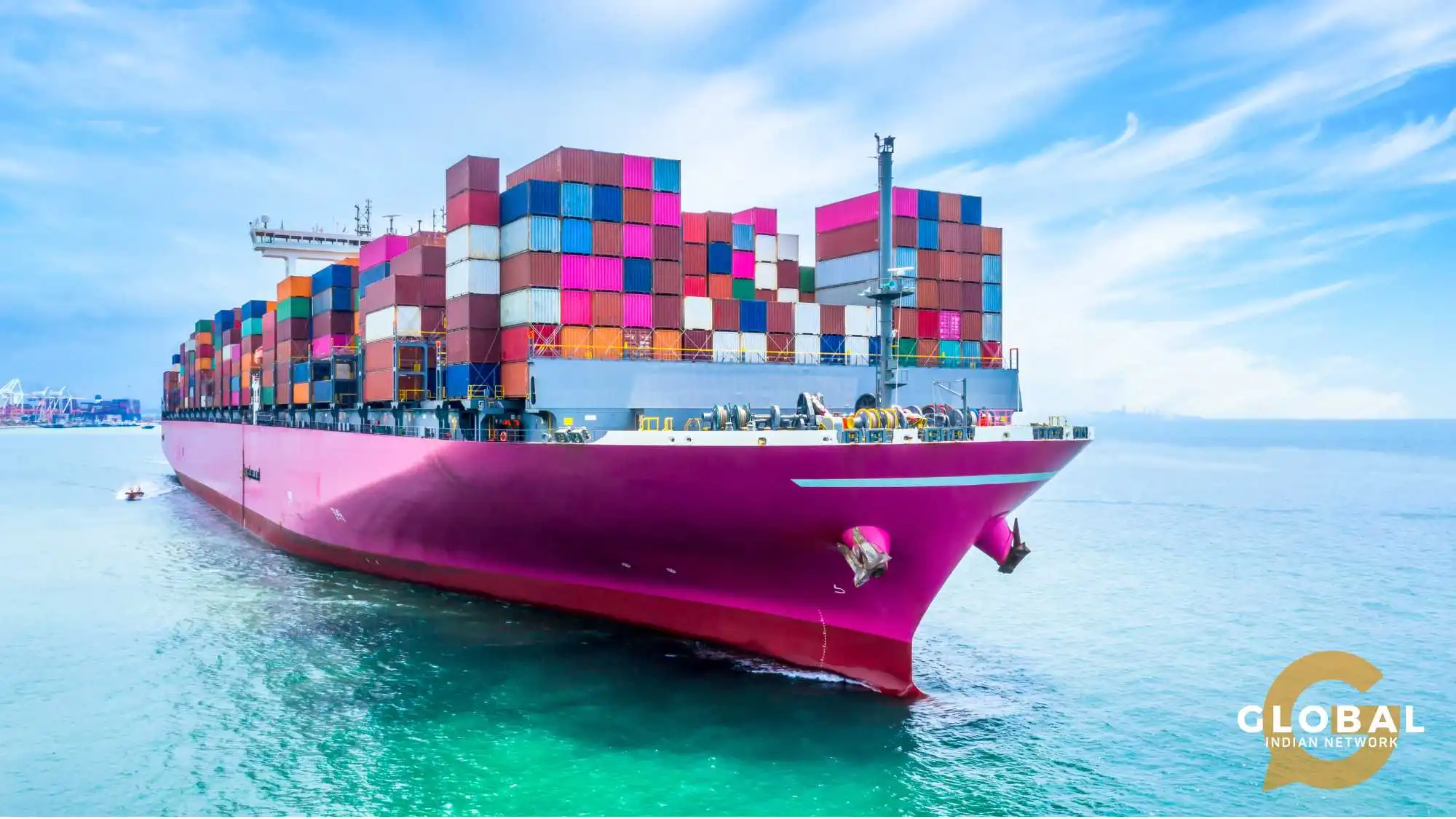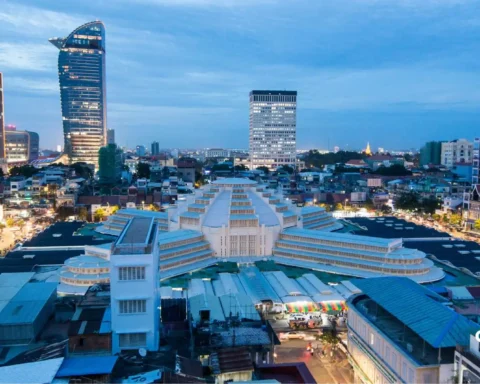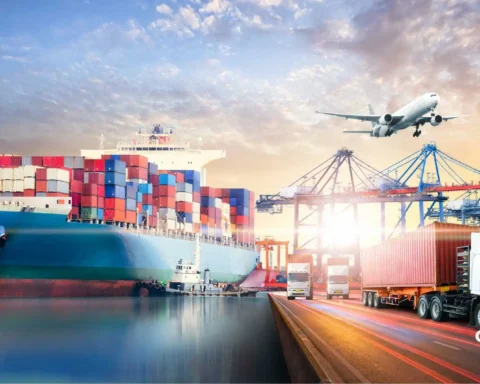Due to its location, Slovenia is a great place for businesses operating in the Western Balkans and Central and Eastern Europe. It is ideally situated in Ljubljana, at the meeting point of the Mediterranean and Baltic-Adriatic. The Trans-European Transport Network (TEN-T) Core Network Corridors. With its state-of-the-art transportation infrastructure, distribution networks by rail and road, shipping and freight forwarding companies, warehousing, and terminal operations, the nation boasts a robust logistics industry. Manufacturers and traders from Asia and Europe can now access faster and more dependable trade routes thanks to its EU membership.
Modern transportation infrastructure and the stellar track record of Slovenian logistics companies make for a winning combination. The nation's road and rail distribution network, freight forwarding and shipping services, goods handling, warehousing, delivery safety, and maritime and inland logistic terminal operations all offer high-quality and reasonably priced services. Because of its EU membership, Slovenia has access to quicker and more dependable trade routes from Asia and Europe, which are supported by fully functional logistics centres.
Listen To This Podcast: Is Slovenia the Emerging Logistics Goldmine in 2024? Insights from Natasa Pogacnik
Table of Contents
Slovenia and Logistics
Slovenia is renowned for its exceptional geographic position, which enables the country to envision groundbreaking advancements in supply chain management and logistics. Slovenian logistics companies offer an excellent network of numerous modes of transportation, digitally optimised planning, online management, and astute technological solutions. Intermodal transportation is also a service offered by some.
Slovenian Logistics Companies
Slovenian logistics companies provide a diverse range of services to their clients, including transportation, warehousing, customs clearance, and freight forwarding. Warehousing services involve the safekeeping and efficient handling of goods stored and managed in warehouses. Customs clearance services are essential for completing the necessary customs procedures and documentation for the import or export of goods. Freight forwarding services manage and coordinate the transportation of goods on behalf of clients, involving transportation, documentation, and customs clearance.
Slovenian logistics companies are utilising technology to improve efficiency and optimise operations in areas like route planning, fleet management, inventory management, and order tracking. Slovenian logistics companies utilise technology to streamline processes, reduce costs, and enhance customer service. Real-time tracking solutions enable customers to monitor their goods' movement, providing better visibility and control over the logistics process. Real-time tracking solutions utilise Global Positioning System (GPS), Radio Frequency Identification (RFID), and Internet of Things (IoT) technologies to monitor and track goods throughout the supply chain, providing accurate and up-to-date information to logistics companies and their customers.
Transportation in Slovenia
Ports
Despite having a shorter coastline than 50 kilometres, Slovenia is capitalising on its location between Italy and Croatia as well as its links to Central Europe. Slovenia's Port of Koper is an Adriatic Sea cargo port that is expanding quickly and acts as a gateway to Europe. It saves up to seven days of travel time for goods arriving from Asia by providing shorter shipment routes compared to the northern ports of Europe.
The port offers delivery times of less than one day by road and less than two days by train to hinterland markets in North Italy, Austria, the German state of Bavaria, the Czech Republic, Slovakia, Hungary, and the Western Balkans. It's the biggest port for cars in the Mediterranean and the biggest port for containers in the Adriatic. Committed to enhancing its roadway infrastructure, Slovenian logistics companies will further improve their capabilities.
Compared to northern ports, the Port of Koper in Europe provides a shorter maritime route for goods from Asia, saving up to 7 days and more than 2,000 nautical miles. With its excellent infrastructure, connections to numerous hinterland markets, and efficient operations, the Port of Koper is the largest container port in the Adriatic.
Additionally, it offers assistance with EU border inspections and customs processes. It has rapidly developed since Slovenia's independence and is one of the largest ports in the northern Adriatic, specialising in industrial products shipped in containers and cars. Koper's container port has a throughput of almost 1 million Twenty-foot Equivalent Units (TEU) in 2021, while its modern car terminal handles 656,000 cars. The Slovenian logistics companies that offer sea freight are an affordable option for business ventures.
Railways
The geographical advantage is that there are four corridors of the European core rail network that pass through Slovenia. From North-Western and Central Europe to South-Eastern Europe and Turkey, freight moves smoothly. The Adriatic Sea port of Port of Koper offers considerably quicker and shorter access to Central and Eastern European (CEE) markets than does the North Sea port.
The main issue is the primary port of Slovenia, Koper, and Divača are connected by a single-track line that currently serves as a bottleneck for logistics flows. When the port experiences cargo congestion due to this track reaching its maximum capacity, some customers choose to reroute their shipments to other ports in the North Adriatic. In 2021, work on building the Second track between Divača and Koper started to address this. This new track is slated to open in May 2026 and is anticipated to be a game-changer. But infrastructure by itself is insufficient. Both competitive services and creative solutions are essential for Slovenian logistic companies.
The Second Track's is of significance since the port's current single-track line is antiquated and unable to handle its volume and speed requirements. More rail capacity from the second track will facilitate more efficient freight movement. Logistics operators place a high priority on the effectiveness of rail connections and their capacity to move massive amounts of cargo to final destinations. The Second Track seeks to resolve these issues and strengthen Slovenian logistics companies’ wide range of services.
Strategic Partnerships are crucial to the logistics realm. In 2021, the Czech company EP Holding became a strategic partner by acquiring a 49% stake in SŽ-Tovorni Promet, a subsidiary of the state-owned Slovenian Railways. This partnership aims to enhance rail services, improve connectivity, and facilitate efficient freight transport and will add to the Slovenian logistics companies’ credibility.
Airports
In all, Slovenia has 40 airstrips, 12 VFR-only airports, 1 military air base, and 3 civil IFR airports.
Three international airports in Slovenia, including Ljubljana Jože Pučnik Airport (previously known as Brnik Airport), provide easy access to the country by plane, with regular and charter flights to major European destinations, fast clearance procedures and suitability for private jets, while international airports in neighbouring countries are also easily reachable within two or three hours by car.
Jože Pučnik Airport, located north of Ljubljana, is a crucial air cargo hub, handling 11.3 million tons of cargo in 2019. It has expanded terminal capacity and plans to develop a new intermodal center. International logistics giants like UPS and DHL operate hubs at the airport. Although its primary function is cargo transportation, Maribor Airport also supports the systems of Slovenian logistics companies. Its advantageous location improves the nation's overall logistics flow.
Roads
Slovenia has a high-quality road transport system with well-maintained motorways and trunk roads, making it easily accessible from anywhere in Europe within a day or two. There are about 400 kilometres of highways, expressways, and related infrastructure in Slovenia. The nation's efficient automobile transportation is made possible by these contemporary road networks. A robust connection exists between eastern and western Europe thanks to the well-connected road network. The nation's economy has increased as a result of improved road infrastructure, supporting the transportation and export sectors, giving Slovenian logistics companies a place on the map.
Slovenia is a significant transportation hub because of its location at the junction of the 5th and 10th Pan-European Corridors. The Adriatic Sea is connected to the Balkans and beyond by these corridors. Slovenia is ideally situated to provide easy access to markets throughout the Balkans, and Eastern and Central Europe. Slovenia is an efficient starting point for reaching about 300 million consumers. The nation's road system makes it easier to transport goods to nearby landlocked nations. An essential port for trade is Slovenia's Port of Koper, which is located on the Adriatic Sea. Good road networks guarantee seamless flow throughout, thereby making Slovenian logistics companies one of the best in Europe.
Logistics Centers
The Logistics Center, which is housed at the airport in Ljubljana, was extended by a cargo partner in 2022. From 25,000 m² to 39,100 m², the total capacity increased, offering 48,000 pallet slots. It provides effective logistical solutions and contemporary climate control systems. Over 20,000 pallet slots, a 6,000 m2 small parts store, and 5,000 m2 of cross-dock and block storage space are all located within the 25,000 m2 warehouse. The warehouse satisfies the stringent requirements for handling and storing pharmaceuticals, medical equipment, automotive, and high-tech goods. It also permits temperature-controlled storage.
iLogistics Center Ljubljana is one of the largest warehouse complexes in Slovenia. The state-of-the-art facilities will also include a drone runway. Slovenian logistics companies embrace futuristic solutions and are ready to cater to larger business needs.
The Ripple Effect
Slovenian logistics companies are renowned for their innovative and creative supply chain management strategies, ensuring efficient and sustainable solutions. Nearly a million tourists visit the lively resort of Portorož and the picturesque Piran on Slovenia's coast each year. However, the coast offers much more than just travel. Take logistics as an example. In addition to being a major logistical centre for Slovenia, the Port of Koper is among the most significant and rapidly expanding ports in the Adriatic.
The port area is home to fuel dealers, financial institutions, and software companies. 3 Port develops IoT applications for cargo handling, IN2 specialises in IT services for insurance companies, and Cimos, the largest manufacturer with over 50 years of experience, produces turbochargers and powertrain components for brands like Bentley, Lamborghini, Audi, BMW, and Volvo.
Slovenian logistics companies prioritise customer satisfaction by offering reliable and high-quality transportation and logistics services. A few years ago, the UK-based Titus Group won the title of FDI employer of the year. Its primary cabinet hardware component production facility is situated near Koper in Dekani. Lipro, a neighbour, constructs transport lines and flexible building structures for automated production. Aluks makes high-end doors for homes.
The Port of Koper, a key Slovenian gateway to Europe, is set to expand despite the pandemic. Construction of a second rail line is set to begin in 2021, enhancing the port's appeal. The operator plans to modernise facilities with 5G-compatible data systems, aiming to increase port sustainability. Koper's photovoltaic systems are set to supply nearly one-third of the port's electricity by the end of the decade, with a 3 MW powerplant underway. The port's location offers significant fuel savings due to its shortest transportation routes.
The world’s third largest player in pharmaceutical logistics, Kuehne + Nagel invested 50 million euros in a pharma warehouse in 2018: it is one of the three largest logistic hubs used by Novartis in the world, making Brnik a key hub for drugs and other pharmaceutical products in Central and Eastern Europe. Last year, Fraport also added a new cold store for pharmaceuticals to its facilities. DB Schenker’s new IT-supported terminal opened this year on the outskirts of Ljubljana. With its top-notch security systems, it is suitable for high-value goods – the other Schenker location in Ljubljana became designated for pharmaceuticals. Slovenian logistics companies have a robust presence in global markets, delivering top-tier services and solutions.
Sustainability Efforts in Logistics
India
Optimising routes and load-sharing can reduce emissions by minimising empty truck journeys. Encouraging larger trucks can improve loading efficiency and reduce the overall carbon footprint. Promoting rail transport offers a lower carbon footprint and can reduce emissions, while investing in dedicated rail freight corridors can enhance efficiency and sustainability. Encouraging the use of cleaner fuels like LNG or electric vehicles can significantly reduce emissions and operational costs. The use of energy-efficient technologies such as LED lighting, motion sensors, building management systems, and solar panels in warehouses can significantly reduce energy consumption and carbon emissions.
AI/ML-enabled route optimisation and data analytics can optimise fuel usage and reduce emissions, while visibility and analytics platforms help identify and mitigate carbon footprints. Companies can implement reverse logistics processes, such as product take-back programs and remanufacturing, to promote material reuse and recycling. Transitioning to a green fleet with cleaner fuel options is a significant step towards environmental responsibility. The Indian government is promoting sustainable logistics practices through initiatives like freight corridor development and port expansion.
Slovenia
Slovenian logistics companies are implementing eco-friendly fleets and AI-driven route optimisation to reduce fuel consumption and emissions. Intermodal solutions and dedicated freight corridors are key strategies for sustainable freight movement, enhancing efficiency, and reducing environmental impact. Slovenia's Port of Koper promotes sustainable practices like energy-efficient operations and waste reduction while promoting short-sea shipping to reduce land-based transport and emissions.
Slovenian airports are focusing on efficient air cargo handling to reduce turnaround times and fuel consumption while exploring biofuels for aviation for sustainability. Green warehouses and smart inventory management are strategies implemented by companies to reduce energy usage and storage space. Slovenian logistics companies embody smart and creative strategies, contributing to long-term societal development
AI in Logistics
AI in Slovenia
The Slovenian government released a draft National Programme (NpUI) in August 2020, aiming to promote AI research, innovation, and global competitiveness. The program focuses on developing a supportive ecosystem, enhancing technological capabilities, implementing AI solutions, fostering international cooperation, ensuring ethical and legal frameworks, and establishing a National AI Observatory.
The NpUI is enhancing human resources in AI by incorporating AI-related knowledge into formal education, helping professionals develop AI competencies, increasing general AI comprehension, and updating the educational system to include digital and computational thinking topics to ensure future generations have the necessary AI competencies.
Slovenia boasts numerous AI research institutes, including the Jozef Stefan Institute, with nearly a thousand staff members, and innovation is fueled by industry, startup, and research institution partnerships. Slovenian logistics companies are utilising artificial intelligence to enhance supply chain management, addressing the increasing complexity of both local and global networks.
Slovenia's AI landscape comprises SMEs, established businesses, and startups, focusing on blockchain technology, complex machine control software, expensive titanium exhaust assemblies, autonomous vehicle navigation, analytical prediction, supply chain visibility, and sustainability and energy efficiency.
Slovenia has allocated EUR 110 million in public funds until 2025 to support the adoption, advancement, and study of AI technologies. Professionals are celebrated for their reliability, adaptability, and commitment to Slovenian logistics companies, and this needs to come to the fore.
AI in India
The Indian government has established a National AI Strategy, focusing on smart cities, smart mobility, healthcare, and agriculture to use AI for inclusive and social growth, which is in line with the government's development philosophy. India leads globally in gender parity in AI, as recognised by the Stanford AI Index 2021, and is also a leader in incorporating women's skills into AI2 and unique vocations.
India ranks fourth globally for AI research papers and eighth for AI patent filings, with 94% of over 5,000 AI patents filed in the past five years. India ranks second in the Asia Pacific region for AI adoption in 2021, demonstrating its leading role in global AI adoption among developing nations.
Notable Players
Notable Slovenian logistics companies include:
- BTC, d.d.
- Eurotek
- Intereuropa
- Airport Ljubljana
- Luka Koper
- Slovenske Zeleznice (Slovenian Railways)
The Business Potential
Slovenia is a key transportation hub because of its location at the meeting point of the fifth and tenth Pan-European corridors. It acts as a gateway to both regions by bridging the Adriatic Sea and the Balkans. The Adriatic Sea port of Koper is an important transhipment hub for cargo, offering the quickest route for goods from Asia to Central Europe.
Connectivity and infrastructure of Slovenian logistics companies are favourable aspects of opening up a business. The Jože Pučnik Airport in Ljubljana is home to several air and land cargo logistics businesses. The airport's cargo and passenger terminal capacity has been increased. To increase distribution capabilities, a new intermodal centre with a railroad connection is being developed.
SPIRIT Slovenia offers free business assistance
SPIRIT, Slovenia’s investment promotion agency, promotes the country as a logistics hub for foreign companies entering the EU market. Nine business facilitation zones across Slovenia offer opportunities for public-private partnership projects. Incentives are based on the commitment to developing the infrastructure of the area chosen. Please note that the approximate car travel time along the greater length of Slovenia, end-to-end, is about 4-5 hours in normal traffic.
For infrastructure improvements through 2030, Slovenia has set aside EUR 17 billion for improvements to logistics and transportation. Railway networks in the fifth and sixth European corridors have been upgraded. The establishment of a second railroad track connecting Divača and the Port of Koper will ease logistics flow. The government promotes digitisation to cut expenses and bureaucracy. Choosing Slovenian logistics companies when doing business with European entry points ensures efficiency and success.
Hydrogen fuel cells and last-mile innovations, such as drones and electric bikes, are transforming the Indian logistics industry by providing efficient transportation options. Slovenia plans to develop hydrogen fuel cell infrastructure for transport, leverage data analytics and IoT for real-time monitoring, and foster sustainable practices through public-private partnerships.
Since artificial intelligence and sustainability are the fields where India and Slovenia find commonality, it is only logical to recommend further ties need to be built on the foundation of these enablers. This could encourage more Slovenian logistics companies to grow to greater heights and improve trade relations between the two nations as well.
Listen To This Podcast: Is Slovenia the Emerging Logistics Goldmine in 2024? Insights from Natasa Pogacnik
Conclusion
Our proposal suggests promoting port connectivity between Slovenia's Port of Koper and India's ports and enhancing infrastructure development. Both governments should support logistics companies through incentives, policy reforms, and infrastructure development, thereby creating a robust trade ecosystem benefiting businesses, consumers, and economies.
Strategic collaboration and focused efforts are needed to improve trade ties between Indian firms and Slovenian logistic companies in the sector. Strengthening existing trade agreements and exploring new ones targeting logistics cooperation can facilitate smoother customs procedures and reduce bureaucratic hurdles. Encouraging Slovenian logistics companies to invest in India's infrastructure projects can enhance connectivity.
The importance of knowledge exchange, digitalisation, sustainable practices, and last-mile connectivity in logistics is critical for sector growth. It advocates for the adoption of digital technologies like AI, blockchain, and IoT, promoting efficient tracking and real-time data exchange. It also emphasises the need for green transportation, energy-efficient warehouses, and waste reduction. These strategies can enhance e-commerce and consumer satisfaction.
The proposal suggests promoting port connectivity between Slovenia's Port of Koper and India's ports and enhancing infrastructure development. Both governments should support logistics companies through incentives, policy reforms, and infrastructure development. This can create a robust trade ecosystem that will benefit consumers and the finances of both Indian firms and Slovenian logistics companies.










[…] You Might Be Interested In: Slovenian Logistics Companies: An Overview […]
[…] The Slovenian banking system allows non-residents to apply for loans under specific conditions, requiring […]